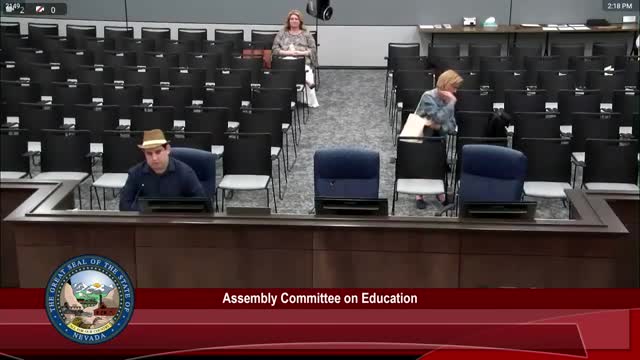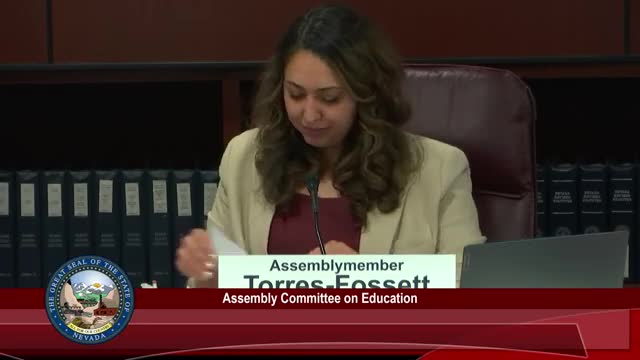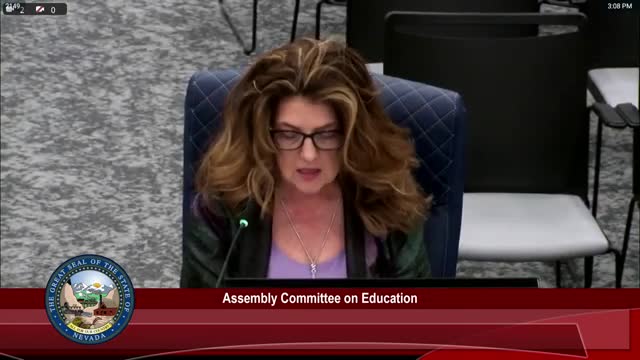Article not found
This article is no longer available. But don't worry—we've gathered other articles that discuss the same topic.

AB 464 sponsor seeks to safeguard current academic standards and protect educators from harassment and retaliation

AB 426 would change school organizational team rules in large districts to boost transparency and parent involvement

Committee hears AB 495 amendment to pause mandatory charter closures and convene review of Nevada School Performance Framework

Assembly Education committee amends and passes multiple bills in work session

